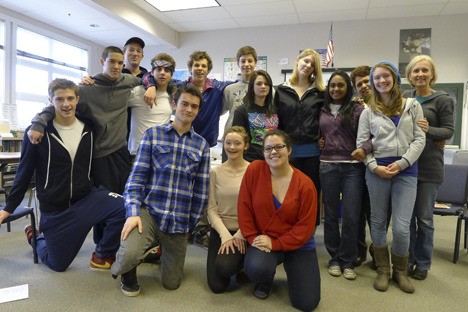Education is not just about classrooms. Educators are not just the people who instruct the students.
That’s according to Greg Ewert and Lisa Geddes, coordinators on the school’s Spanish Club trip.
“Every high school student should experience a third world county and understand that way of life,” Ewert said. “How can you possibly know what this world is about unless you get out and see it?”
“Getting out and seeing it” is one of the major principles of the Lopez School’s bi-annual trip to Nicaragua. Every two years since 2001, a group of students, (and recently parents), travel to an area near Managua, the capital city of Nicaragua.
The 2011 group of 12 will set of on Feb 19, for two weeks.
This is no vacation. In the spirit of education through travel and activity, the students will work with a development organization, the Center for Development in Central America.
Students will work side by side with Nicaraguans on a number of projects, from digging irrigation ditches to helping in a medical clinic.
They will also take classes on Nicaraguan culture and history. This combination of class work and labor gives students the oppertunity to work on their language and knowledge while appreciating the reality of the country they are studying.
Ewert said that the organization’s work programs are really designed for college age students. In fact, they do not take on any other high schoolers except those from Lopez.
“They are well prepared, they take on difficult things to see and deal with,” Ewert said. There is, he added, a level of maturity and capability that is appreciated in Lopez students.
The students are going into the project mindful of the environment they will see. One student, Brooke Schober, said that they have talked as a group about handling reactions, and how to “not let your feelings get in the way.”
Ewert added that in the evening the group will gather to talk over and process any difficulties the students might have had. Above all, they are eager to get traveling, working and learning.
The students raised a large part of the money for the trip themselves. Both Ewert and Geddes add that valuable funding came from the Lopez Island community. Ewert said that the group appreciated those efforts, allowing Lopez children to learn in a unique, and lasting way.



